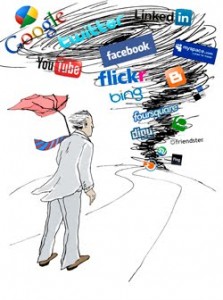With the speed at which today’s news is shared via social media, channels like Twitter and Facebook that offer instantaneous broadcast capability are critical assets to have in one’s crisis communications arsenal. Unfortunately, these same channels can do more harm than good when fact-checking falls secondary to being first to “break the news,” and false information is reported.
We’ve seen both sides of this social media struggle play out in recent events, such as Burger King’s crisis in July of last year, when pictures of a restaurant employee standing in bins of lettuce went viral and threatened the company’s reputation. Rather than let the story evolve on social media and create further chaos, Burger King acted quickly to track down those responsible, terminate their employment and reassure customers of the company’s zero-tolerance policy on such behavior, all within about a 24-hour time span.
On the flip side, the Sandy Hook Elementary School shooting shocked the country into a social media frenzy of misinformation. Initial reports caused accusations against Ryan Lanza, who was mistakenly identified as the shooter and, as a result, verbally accosted on social media. Crude comments flooded Ryan’s Facebook page before it was determined that his brother, Adam Lanza, was responsible. Additional reports wrongly stated that Ryan had been shot by his brother inside an apartment building in Hoboken, N.J. What took minutes to post on social media resulted in hours of clarification to set the story straight.
Regardless of whether you’re on the proactive or reactive side of a crisis, certain steps should be taken to ensure your PR efforts are working. A few best practices listed in Radian 6’s blog post Shining Examples of Excellent Social Media Crisis Management are a good guide to follow:
- Listening—Scanning the social media horizon to monitor for developing issues allows you to get a head start towards identifying any potential issues that may need to be addressed.
- Crisis Response Plan—We cannot underscore the importance of having a crisis plan in place. This key step will save your team valuable time when it comes to executing your response. Better yet do a practice run. Our Denver-based Public Relations Global Network affiliate firm, GroundFloor Media, offers clients a customized training simulation on handling a crisis across multiple social media platforms through an exclusive tool called the Online War Room™.
- Tone—A little empathy, humor and/or authenticity in your messaging can go a long way to resolve crises and diffuse tense situations.
Social media can be both helpful and hindering in a crisis. For PR professionals, it’s no longer an option of whether or not to utilize social media during these times—it’s a question of whether you can effectively leverage its instant broadcast capability to your advantage, or if you will get swept away by the social media rumor mill. Reporters, bloggers and others will immediately spread their own interpretation of the story. Those of us in the PR industry must remain proactive and diligent in our efforts to combat any misinformation with clear, consistent and, most importantly, fact-based communication.
